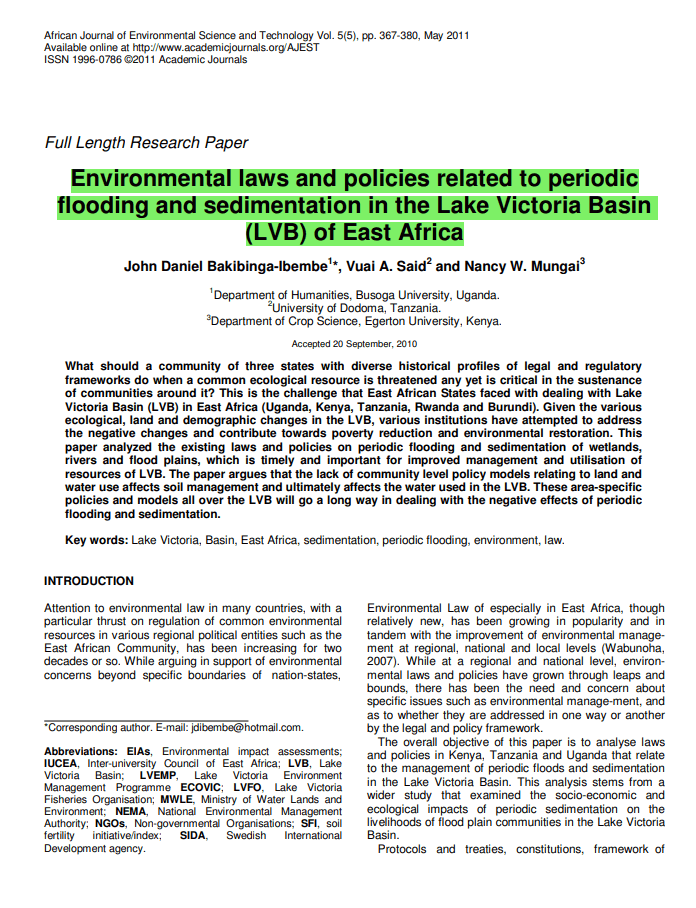What should a community of three states with diverse historical profiles of legal and regulatory frameworks do when a common ecological resource is threatened any yet is critical in the sustenance of communities around it? This is the challenge that East African States faced with dealing with Lake Victoria Basin (LVB) in East Africa (Uganda, Kenya, Tanzania, Rwanda and Burundi). Given the various ecological, land and demographic changes in the LVB, various institutions have attempted to address the negative changes and contribute towards poverty reduction and environmental restoration. This paper analyzed the existing laws and policies on periodic flooding and sedimentation of wetlands,
rivers and flood plains, which is timely and important for improved management and utilisation of resources of LVB. The paper argues that the lack of community level policy models relating to land and
water use affects soil management and ultimately affects the water used in the LVB. These area-specific
policies and models all over the LVB will go a long way in dealing with the negative effects of periodic
flooding and sedimentation.

★★★★★
1.6k views1.1k likes👍 Like
★★★★★★
